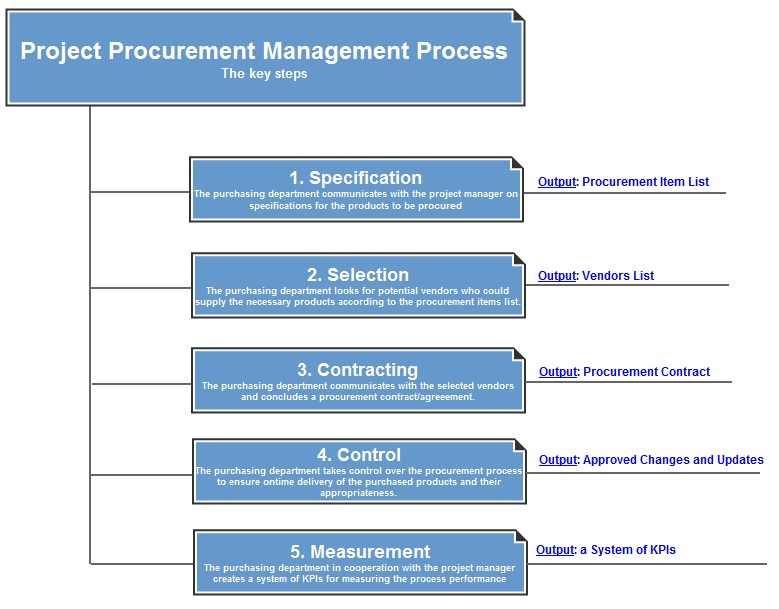Essential Self-Management Skills for Employees: How to Be Productive at Workplace

Developing self-management skills is one of management best practices for those employees who have decided to become more productive at workplace.
While companies tend to invest a lot of money and energy in employee training and improving employee performance, every worker can personally organize self-assessment surveys to define whether he or she has the required skills set.
Such an idea is extremely important for workers who aggressively look at career development. Without the personal effort for developing self-organization and self-management skills, it’s hard to imagine a productive employee who succeeds in career promotion and professional advancement.
This article is written to help you answer the question “What are self management skills?” and how to be a productive employee at the workplace.
What Are Self-Management Skills?
Self-management skills are those abilities that allow an employee to feel more productive when doing daily routine tasks regardless of the working environment. Well-developed self-management skills will help you efficiently communicate with co-workers, senior management, and customers, make right decisions, maintain a work-life balance, and keep your body and mind healthy.
To improve self management skills, employers often organize special self-assessment training and development. Usually such training is conducted by the HR department (or external trainers are employed). To develop self-management skills of the personnel, your company can organize self-development training sessions.
Any employer is interested in hiring a productive individual who has well-developed self-management skills because this employee fits the company’s requirements and shows better productivity.
For employees it’s highly important to develop self-management skills and abilities because higher productivity paves the way for career promotion and professional advancement.
In any way, both the employer and the employee will benefit from developing the abilities and skills for self-management.
Essential skills for self organization and engagement

Reduce bias and encourage yourself to self-improve your skills and be open to leadership potential and communication
Here is a list of the key self management skills required for an employee to be more productive at workplace.
If you want to achieve career advancement and improve your stress management, you need to consider this set of personal skills and work on the development of the necessary abilities for self-organization and employee engagement.
1. Stress resistance
The first and foremost skill of self-management refers to a personal ability to resist any stressful situations. When you improve this self management skill, you can avoid many mistakes that people usually make when being stressed out at the workplace.
Because a stressful situation usually blocks our ability to think and make rational decisions, we can’t cope even with the simplest tasks at the workplace, so our productivity goes down and we get frustrated. That’s why you need to develop this ability in order to be a productive employee able to offer resistance to a stressful situation.
2. Problem Solving
The second self-management skill requires you to use your brain as a mechanism for making right decisions. Even the hardest tasks and challenges can be efficiently handled if the mental process in your head is always in progress. Problem solving requires you to operate facts and make right assumptions to analyze the situation, review problems, and find effective solutions. Keeping your mind sober allows you to make right decisions even in the toughest situations.
3. Communication
The way you can communicate information to others will determine your success.
Communication is one of the key self-management skills required for both personal development and career advancement, including virtual public speaking.
Being able to efficiently communicate any information to other people means that you can share information with the minimized possible distortion and in the fastest possible way. Productive employees always can efficiently communicate with their colleagues, project managers, and team leaders because they comprehensively understand the value of clearly and timely delivered information. So be sure you work on developing this skill for self-management.
4. Time Management
Producing expected results in a timely manner determines the success of our effort. Time management is an extremely important self-management skill that makes an employee be more productive. There’s a great variety of time management techniques that show you how to develop this skill for self-management. Just use the web search to find plenty of them.
5. Memory
An ability to memorize events, names, facts, etc., allows an employee to remember about everything he/she needs to do daily tasks and duties. Among other self-management skills examples, committing to memory requires your personal effort for developing your mind abilities. There’s a lot of techniques for improving memory, so use the web search to find them.
6. Physical Activity
Keeping your body in good shape is a critical self-management skill example. When you feel healthy and have a robust nervous system, you can do more things and cope with many challenges. Physical activity (like jogging, fitness, different sorts of sports, etc.) allows you to strengthen your body, keep your muscles up, and be more productive.
How to Be a Productive Employee (Checklist)

Find your way to personal development and improve the skills that help you be av ever productive employee
Here’s a simple checklist that will help you develop your self management skills and be more productive at your workplace:
#1. Make a to-do list. You can’t efficiently plan for anything having no to-do list in place. First you need to make a task list and specify the key tasks for developing self management skills examples. Use task management software to create and manage your tasks.
#2. Prioritize tasks. Your to-do list may have a lot of tasks. But which tasks to complete first? To answer this question you need to consider all the tasks in your to-do list and then set the right priorities in your office or remote working. By prioritizing the tasks you can decide what examples of self-management skills you’ll need to develop first (according to your current needs and employment requirements).
#3. Schedule tasks. Scheduling allows you to set deadlines and time-frames for your tasks. Use task management software to develop schedules and set task due dates relating to developing the self-management skills.
#4. Be flexible. Regardless of your intentions and wishes, there will be days (caused by illness, vacation, holidays etc.) when the external world won’t let you develop your project management skills.
That’s why you need to be flexible to get everything done through putting your tasks on hold and then returning back to the prioritized items on your to-do list. You shouldn’t be frustrated and stressed out when you can’t do a task because of some external factor (e.g. illness) – just put everything on hold and get back to your tasks as soon as you get an occasion for developing self management skills.
Summary
The article demonstrated what self-management skills mean, showed the key examples of those skills and described a small checklist for employees. Hopefully it will help you be a productive employee at the workplace – remote or office, regardless of the global pandemic. Please feel free to leave your comments and feedback.














